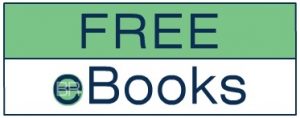Sony has launched its new tablets making good on its claim to challenge the Apple iPad for market supremacy. Check out the guardian story here.
Aug 31
No eReader? You can still read eBooks…
Friends at Broadband Service Providers stopped by with a list of 10 different ways to read an eBook without an eReader.
There are more options than might expect.
Aug 30
Amazon could sell 3-5 million tablets this year.
eBookNewser posted on a prediction by Forrester Research that Amazon could sell as many as 3 to 5-million tablets in 2011. The device is rumored to hit the market for the holiday buying season with a price in the $250-$300 range.
Aug 29
Books with soundtracks arrive on the market…
Many thanks to our friend Jorgen for a link to a Telegraph post on the new enhanced eBooks that are starting to appear on the market.
Can you imagine reading Arthur Conan Doyle’s “The Adventure of the Speckled Band” with “rain, thunderclaps and blood-curdling screams” supplied.
It will be interesting to see if this is a white elephant in the making.
Aug 28
Tablet and eBook Reader Demographics
GoodeReader offers a comparison of Tablet and eBook Reader demographics.
Aug 27
Stephen King releasing a digital-only novella.
Stephen King will soon release his novella Mile 81 in eBook form only.
As this GoodeReader story points out, he’s already done this with his Kindle short story UR, but the fact that he’s testing the waters once again is bound to be giving his publisher Simon & Schuster some sleepless nights.
They’re involved with the promotion and delivery of Mile 81, but King is testing the waters with some social media experiments of his own. It’s not a big step from there to publishing them himself.
Aug 26
Who is buying the eBook Readers?
Time wonders who is buying all the eBook Readers in a Techland section post.
I agree with some of their findings, but think the writer is showing a gigabyte of tech-savvy self-interest by suggesting even lightly that eBook Readers are “yesterday’s news.” Good God.
Barely 20% of the North American population knows what an eBook is. Expand that globally, and you can see how ridiculous the suggestion sounds.
Aug 25
New Year launch for iPad 3?
WallStreet&Technology offers a sneak peek at some statistics on the rumored Apple iPad 3. They’re also predicting an early 2012 launch.
Aug 24
Is the B&N Nook Color right for you?
A slow news day in the eBook Revolution brings us a revisit and review of the Barnes and Noble Nook Color at GottaBeMobile. Pics and video at the link!
Aug 23
Simon & Schuster offers Indie author John Locke a sales and distribution deal.
It was just a matter of time before this happened. New York Observer says that publisher Simon & Shuster has signed a sales and distribution agreement with Indie author John Locke after his titles’ stellar performance at Amazon’s Kindle store. It’s kind of a no brainer, since he’s sold over a million copies, but I’m certain we’ll see more of these deals struck with other authors in the future.
The real story will be when traditional publishers begin to cut deals with authors of good books that are selling in the tens of thousands. I mean, anyone can pick a best seller that’s a best seller!








